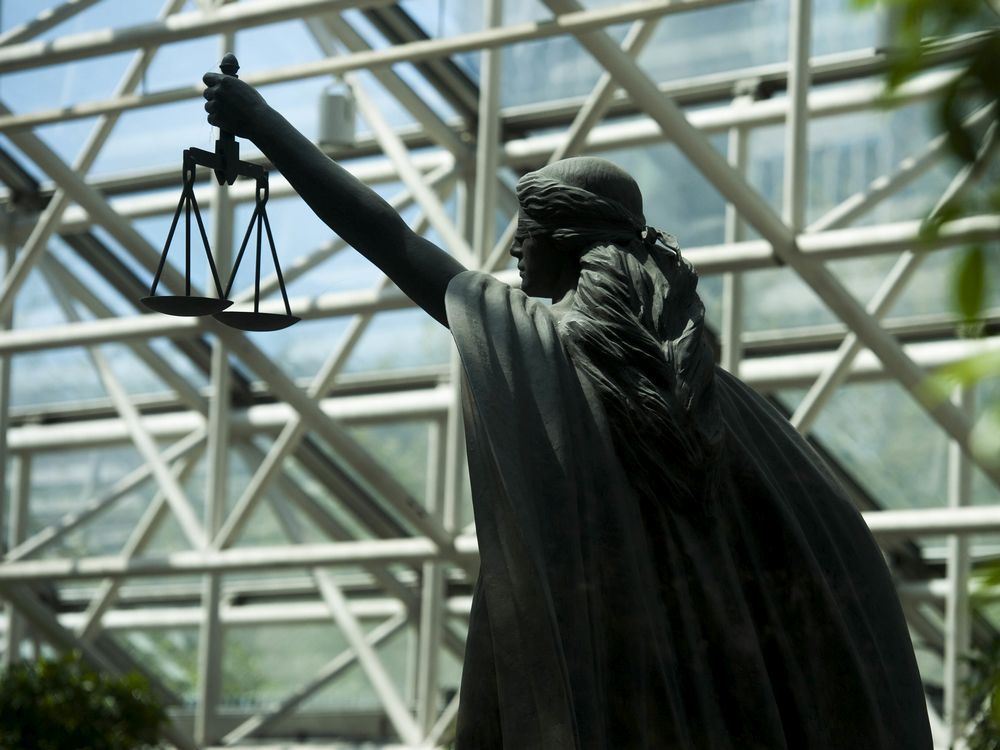REAL SCOOP: Appeal court rules against accused drug smuggler

Credit to Author: Kim Bolan| Date: Thu, 07 Nov 2019 23:18:27 +0000
Some U.S. extradition cases seem to take years to work their way through B.C. courts. Two weeks ago, the B.C. Court of Appeal ordered the Justice Minister to reconsider a decision by former minister Jody Wilson-Raybould to surrender accused money launderer Glenn Sheck to the U.S. on the grounds that his indigenous heritage was not given enough consideration.
Today B.C.’s highest court ruled against a bid to head off extradition by a Salvardoran-Canadian accused of conspiracy to smuggle and traffic heroin, methamphetamine and opium in the U.S.
Here’s my story:
U.S. President Donald Trump’s negative comments about Central American refugees are not grounds to reverse a decision to send a Salvadoran-Canadian to Washington state to face drug smuggling charges, the B.C. Court of Appeal ruled Thursday.
Justice Peter Willcock rejected arguments made on behalf of Hugo Argueta-Gonzalez that he would face racism in the U.S. justice system because of his Latino heritage.
Defence lawyer Gary Botting submitted that former justice minister Jody Wilson-Raybould erred in deciding his client should be surrendered to the Americans without properly considering Trump’s anti-immigrant rhetoric.
He had argued that “the minister failed to exercise her discretion by denying (Argueta-Gonzalez) relief … given that the president of the United States as recently rallied against Latinos entering the country, prejudicially labelling them as criminals and terrorists, thereby indicating systemic bias by the United States against persons of El Salvadoran origin.”
But Willcock said Wilson-Raybould made no mistake as she considered “the applicant’s opinion that there is a political atmosphere hostile to Central American refugees in the United States.”
He said the former minister, in ordering Argueta-Gonzalez’s surrender, relied upon “the independence of the judiciary” in the U.S. and the fact that those accused south of the border are afforded due process.
“In my view, the minister cannot be said to have erred,” said Willcock. Appeal Court Justices Mary Newbury and Richard Goepel agreed.
Argueta-Gonzalez, who is also known as Hugo Castillo-Colunga, also said in his appeal hearing that his charter right to be tried in Canada was violated and that the minister had not paid enough attention to the impact of extradition on his family. And he claimed the U.S. had delayed prosecuting him on the drug conspiracy allegations, which date back to 2012 and 2013.
Willcock also rejected the other arguments.
“I will not accede to the argument the minister erred in law by not refusing to make the surrender order on the grounds identified by the applicant,” he said. “Nor in my view has the applicant made out a case for judicial review that surrender would be unjust or oppressive having regard to all the relevant circumstances either individually or collectively.”
Last year, B.C. Supreme Court Justice Janet Winteringham ordered the accused smuggler extradited.
Winteringham ruled that the summary of the evidence provided to Canada “is sufficient to establish a prima facie case” that Argueta-Gonzalez trafficked almost two kilograms of heroin, almost 66 kilograms of methamphetamine and 33 grams of opium between late 2012 and April 2013.
“On the committal evidence, a reasonable jury, properly instructed, could convict” Argueta-Gonzalez, she said.
The U.S. alleges that on Nov. 23, 2012, a confidential witness spoke to Argueta-Gonzalez “to arrange for drugs to be transported from Washington state to British Columbia for sale in Canada.”
The next day, the accused allegedly told “the confidential witness that he would send `Chemo’s’ telephone number so the confidential witness and Chemo could arrange to meet to obtain the drugs that the confidential witness would transport into Canada.”
On Nov. 24, “a deputy sheriff from Whatcom County stopped a vehicle matching the description of the vehicle given by Chemo to the confidential witness. During this traffic stop, the deputy saw a green and black backpack on the rear seat of the car.”
Chemo sped away, crashed the truck and left the backpack “with spilled contents believed to be narcotics,” the court documents say, Argueta-Gonzalez talked to the witness on the phone later that day “about the police chasing Chemo and Chemo’s escape without the drugs.”
In March 2013, an undercover agent spoke with the accused about getting a sample of opium, which was then delivered by another man the next day, the documents state. The agent later met Argueta-Gonzalez twice at Peace Arch Park “to discuss the sale of heroin” for $120,000 per kilo.
The biggest drug transaction was made in April 2013 after a series of phone calls between the confidential witness and the accused, the court documents allege. A shipment of 65.5 kilograms of methamphetamine from Canada was later intercepted in Bellingham, Wash.
Argueta-Gonzalez is seeking leave to appeal Thursday’s ruling to the Supreme Court of Canada.